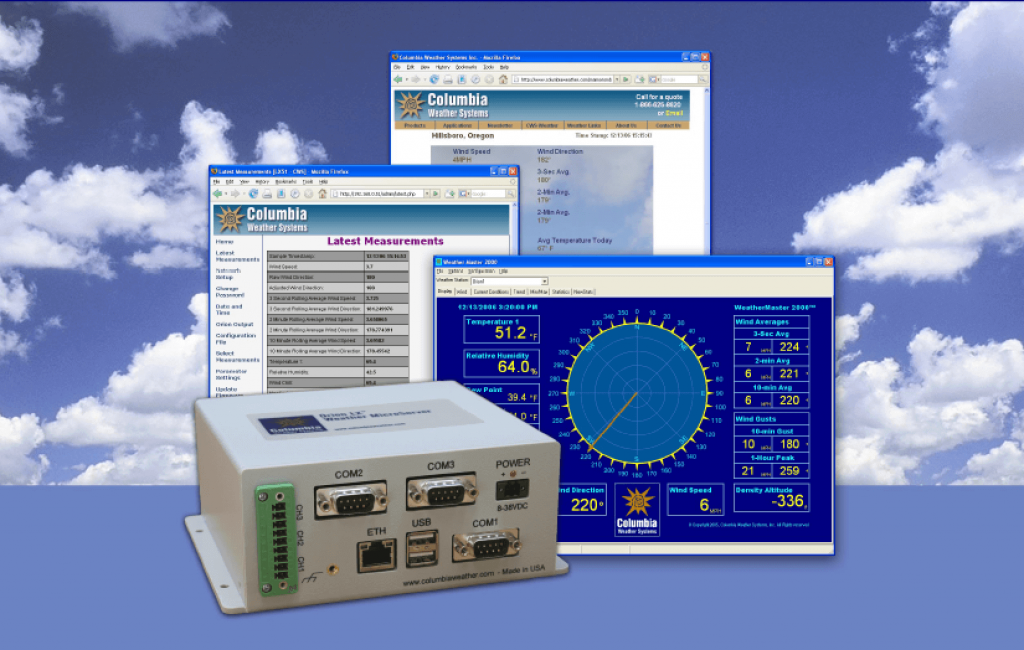1. EXECUTIVE SUMMARY
-
CVSS v3 9.8
- ATTENTION: Exploitable remotely/low skill level to exploit
- Vendor: Columbia Weather Systems, Inc.
- Equipment: Weather MicroServer
- Vulnerabilities: Cross-site Scripting, Path Traversal, Improper Authentication, Improper Input Validation, Code Injection
2. RISK EVALUATION
Successful exploitation of these vulnerabilities may allow disclosure of data, cause a denial-of-service condition, and allow remote code execution.
3. TECHNICAL DETAILS
3.1 AFFECTED PRODUCTS
The following versions of Weather MicroServer, a weather monitoring system, are affected:
- Weather MicroServer firmware Version MS_2.6.9900 and prior.
3.2 VULNERABILITY OVERVIEW
3.2.1 IMPROPER NEUTRALIZATION OF INPUT DURING WEB PAGE GENERATION (‘CROSS-SITE SCRIPTING’) CWE-79
A cross-site scripting error exists that does not properly validate input, which may allow arbitrary web script to be executed.
CVE-2018-18875 has been assigned to this vulnerability. A CVSS v3 base score of 7.3 has been calculated; the CVSS vector string is (AV:N/AC:L/PR:N/UI:N/S:U/C:L/I:L/A:L).
3.2.2 IMPROPER LIMITATION OF A PATHNAME TO A RESTRICTED DIRECTORY (‘PATH TRAVERSAL’) CWE-22
A path traversal vulnerability exists that could allow an attacker read access to files within the directory structure of the target device.
CVE-2018-18876 has been assigned to this vulnerability. A CVSS v3 base score of 5.3 has been calculated; the CVSS vector string is (AV:N/AC:L/PR:N/UI:N/S:U/C:L/I:N/A:N).
3.2.3 IMPROPER AUTHENTICATION CWE-287
An improper authentication vulnerability exists that could allow a possible authentication bypass, allowing an attacker to manipulate the device and cause a denial-of-service condition.
CVE-2018-18877 has been assigned to this vulnerability. A CVSS v3 base score of 9.8 has been calculated; the CVSS vector string is (AV:N/AC:L/PR:N/UI:N/S:U/C:H/I:H/A:H).
3.2.4 IMPROPER INPUT VALIDATION CWE-20
An improper input validation vulnerability exists allowing an attacker to craft the input in a form that is not expected by the rest of the application, causing a denial-of-service condition and the device to become unavailable.
CVE-2018-18878 has been assigned to this vulnerability. A CVSS v3 base score of 7.5 has been calculated; the CVSS vector string is (AV:N/AC:L/PR:N/UI:N/S:U/C:N/I:N/A:H).
3.2.5 IMPROPER CONTROL OF GENERATION OF CODE (‘CODE INJECTION’) CWE-94
A code injection vulnerability exists that could allow remote code execution.
CVE-2018-18879 has been assigned to this vulnerability. A CVSS v3 base score of 9.8 has been assigned; the CVSS vector string is (AV:N/AC:L/PR:N/UI:N/S:U/C:H/I:H/A:H).
3.2.6 IMPROPER NEUTRALIZATION OF INPUT DURING WEB PAGE GENERATION (‘CROSS-SITE SCRIPTING’) CWE-79
A cross-site scripting error exists that does not properly validate input, which may allow arbitrary web script to be executed.
CVE-2018-18880 has been assigned to this vulnerability. A CVSS v3 base score of 7.3 has been calculated; the CVSS vector string is (AV:N/AC:L/PR:N/UI:N/S:U/C:L/I:L/A:L).
3.3 BACKGROUND
- CRITICAL INFRASTRUCTURE SECTORS: Information Technology
- COUNTRIES/AREAS DEPLOYED: United States
- COMPANY HEADQUARTERS LOCATION: United States
3.4 RESEARCHER
John Elder and Tom Westenberg of Applied Risk reported these vulnerabilities to NCCIC.
4. MITIGATIONS
Columbia Weather Systems has released a firmware update, Version: MS_2.7.9973, that addresses all the above vulnerabilities found on the Weather MicroServer.
NCCIC recommends users take defensive measures to minimize the risk of exploitation of this vulnerability. Specifically, users should:
- Minimize network exposure for all control system devices and/or systems, and ensure that they are not accessible from the Internet.
- Locate control system networks and remote devices behind firewalls, and isolate them from the business network.
- When remote access is required, use secure methods, such as Virtual Private Networks (VPNs), recognizing that VPNs may have vulnerabilities and should be updated to the most current version available. Also recognize that VPN is only as secure as the connected devices.
NCCIC reminds organizations to perform proper impact analysis and risk assessment prior to deploying defensive measures.
NCCIC also provides a section for control systems security recommended practices on the ICS-CERT web page. Several recommended practices are available for reading and download, including Improving Industrial Control Systems Cybersecurity with Defense-in-Depth Strategies.
Additional mitigation guidance and recommended practices are publicly available on the ICS-CERT website in the Technical Information Paper, ICS-TIP-12-146-01B–Targeted Cyber Intrusion Detection and Mitigation Strategies.
Organizations observing any suspected malicious activity should follow their established internal procedures and report their findings to NCCIC for tracking and correlation against other incidents.
No known public exploits specifically target these vulnerabilities
Source:
https://ics-cert.us-cert.gov/advisories/ICSA-19-078-02
